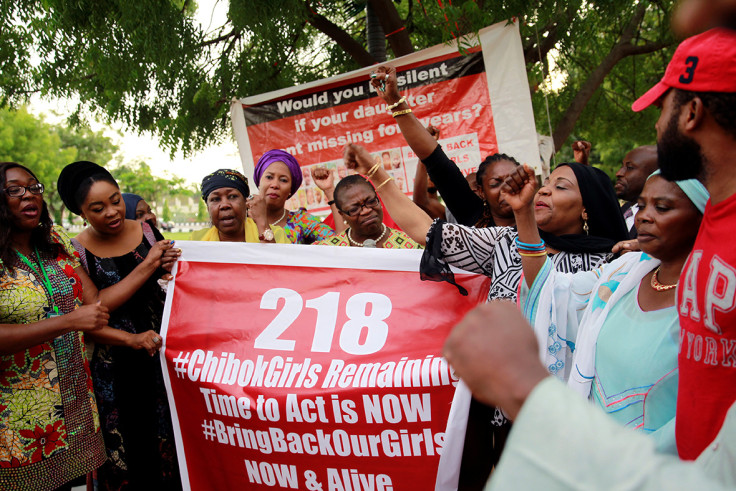Boko Haram releases video claiming to show 'kidnapped Chibok girls' alive
More than 275 girls were kidnapped from an evening school in Chibok in April 2014.
Nigeria-based terror group Boko Haram is believed to have released a video purportedly showing hundreds of schoolgirls the group kidnapped in April 2014. The YouTube video was posted on social media by Ahmed Salkida, who had strong ties with Boko Haram's late leader, Mohammed Yusuf .
Around 50 girls appeared in the video wearing headscarves behind a Boko Haram militant who calls for the release of fighters in return for the release of the girls.
The 276 girls were kidnapped as they were attending evening school in Chibok, in the restive Borno state, on 14 April 2014. Some of the girls managed to escape and one was rescued in the Sambisa forest earlier this year, but at least 218 are still missing.
Last April, Boko Haram released a video purportedly showing 15 of the Chibok girls still alive.
Although the Chibok abduction was not the first mass kidnapping carried out by the terrorists, it was the only one that attracted international outrage, led to the creation of the global movement Bring Back Our Girls (BBOG) and shone a spotlight on the deadly insurgency of Boko Haram that had previously been under-reported.
Who are Boko Haram?
Boko Haram, which has rebranded itself Iswap, fights against Western influence in Nigeria and aims to impose its version of Sharia law throughout occupied territories. The group's name refers to Western education as being a sin.
The group carries out attacks in Nigeria and neighbouring countries in a bid to take control of more territory. Three Nigerian states − Adamawa, Borno and Yobe − have been under a state of emergency since May 2013.
Boko Haram has killed more than 20,000 people since 2009 and was deemed the world's deadliest terror group, surpassing its ally, Islamic State (also known as Isis, Isil and Daesh), in November 2015. Nigeria has become the world's third most terrorised country as a result of the group's violent insurgency.

© Copyright IBTimes 2024. All rights reserved.






